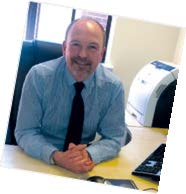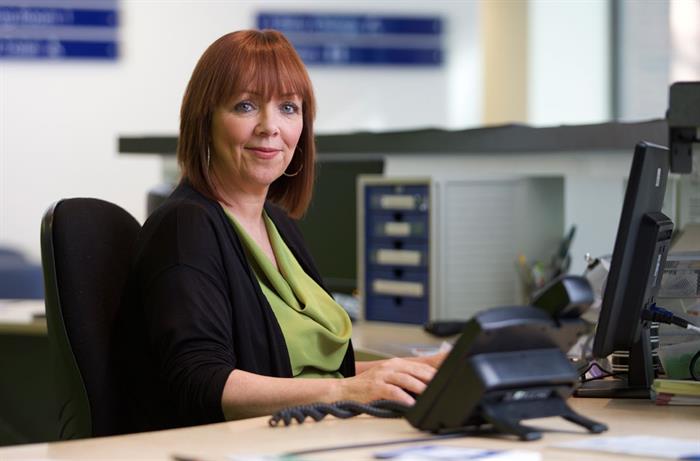The light: Group practice
Post date: 04/06/2015 | Time to read article: 5 minsThe information within this article was correct at the time of publishing. Last updated 18/05/2020
 Charlotte Hudson, deputy editor of Practice Matters, interviews Nick Giles, area operations manager for the One Medical group - The Light, Leeds, about the secret to the practice's success.
Charlotte Hudson, deputy editor of Practice Matters, interviews Nick Giles, area operations manager for the One Medical group - The Light, Leeds, about the secret to the practice's success.
What is the practice demographic?
The Light has a very young, working population; we have very few elderly patients. This means that our GPs don’t have to do many home visits, and most visits to the surgery are for acute illness as opposed to chronic illness. The male to female split is 50/50 and there are a number of child patients. Patients don’t have to live in the city centre to register with us, we have patients who live in Bradford but work in Leeds so it’s easier for them. We are open from 7am until 8pm on some days so this suits a lot of people working in the city centre.
How many patients do you have?
We currently have 11,500 patients, and this is growing by an average of 1,000 patients per year. We get an influx of between 700 and 800 new patients when students move into the area in August/September. We promote the practice to new students by attending the halls during move-in and handing out promotional materials.
Since working at The Light I’ve done three presentations, for the 9,000th patient, 10,000th patient and 11,000th patient. We call them up, invite them into the practice and invite the local paper down if they’re happy to be photographed.
How long have you worked for the practice?
I’ve worked for the group since November 2012. I used to work at Abbey Medical Group in York, and prior to that I was the regional director for a number of food retail companies. The NHS was all new to me when I got the job in York.
Why the One Medical Group?
I liked the idea of looking after numerous sites, being able to share best practice, and also transferring my years of experience to the NHS. I feel that the NHS has not always been very business-focused, so I found the job attractive because I can look at how we can be more efficient and cost-effective.
|
The Light Surgery, run by the One Medical Group, is the first and only NHS GP surgery in Leeds city centre. Based in The Light Shopping Centre, it is situated in a prime location for local working professionals and students. Nick Giles looks after six sites in total, which make up just part of the One Medical Group. |

| Find out eight ways to streamline your appointment system, written by Nick |
Tell me about your PPG…
We’ve had a PPG for about two years – it works well but it is difficult to engage with patients. We have ten patients on the list and hold quarterly meetings, usually with two or three different patients each meeting.
The PPG has been instrumental in making a number of improvements in the practice. We’ve had real problems with women not coming in for their cervical smears, so we did a survey and got the PPG involved, asking patients when the best time would be for them to come in for their smears. We had two results – lunchtime drop-ins and Saturday mornings. Saturdays were very successful.
The PPG also helped with the Friends and Family Test – patients can either fill in cards, give feedback via text, or use the iPad that is on the reception desk, which we think is quite innovative. The majority of patients say they would be extremely likely to recommend us. Our response rate is currently 14%, which is an achievement in itself, because most practices have an average response rate of about 4%.
It is now a requirement for GP practices to provide online access for patients. How has The Light implemented this in the practice?
We have provided online access for two years. We have 1,800 patients signed up now, which is around 14% of the population. This list is growing all the time. Patients can also download our app from the website.
Have you developed a ‘safety culture’ in preparation for a CQC inspection?
Because we have a number of sites that have already had an inspection, we have a good idea of what to expect. During the inspections you basically have to be honest – talk about what’s good, what’s bad and how you’re going to fix any problems. They are very interested in hearing about how you’re going to resolve issues. We have a very good safety culture in practice. We hold a clinical meeting once a month, made up of all clinicians, and we also have a lead GP and a group medical director who he reports to. All significant event reports are submitted online, and once submitted, they go into the minutes of the next clinical meeting, are discussed and learning points made so it doesn’t happen again.
Key achievement:DNAs at the practice are at 4%, when they were once at 15%. This has been helped by 91% of patients giving us their phone details, which enables us to contact them via phone-call and text message – and for patients to reply by text message. |
What are the challenges for the practice? How are you overcoming them?
We don’t have enough doctors, nurses or appointments. Patients are more demanding now; they want more access, they want it quickly, and they want what they want and not what they necessarily need. To get around this we try to be very efficient.
We are in the process of setting up a central hub, made up of a bank of secretaries, note summarisers, read coders and letter readers. This central hub of staff will handle all work across all sites that make up the One Medical Group, filling the gaps that occur when staff are absent, ensuring the quality of service to patients. We are lucky because it’s not something you could do unless you have got a group structure.
For example, if a doctor goes on holiday or phones in sick, one of our doctors can log in to the system remotely and do telephone appointments, sign prescriptions electronically, do pathology, etc.
What do you like most about your job?
I like developing staff and seeing them improving what they do. I also like communicating with people, sharing best practice, and seeing results of where we have done things differently. My role is a good mix of business and looking after people.
In order to be successful you need to surround yourself with good people that can do the job, create a nice working environment for staff, and reward them properly. Good communication is vital and getting staff to buy-in to what you’re trying to achieve is important.
In order to be successful you need to surround yourself with good people that can do the job, create a nice working environment for staff, and reward them properly. Good communication is vital and getting staff to buy-in to what you’re trying to achieve is important.
Download a PDF of this edition
PDF
